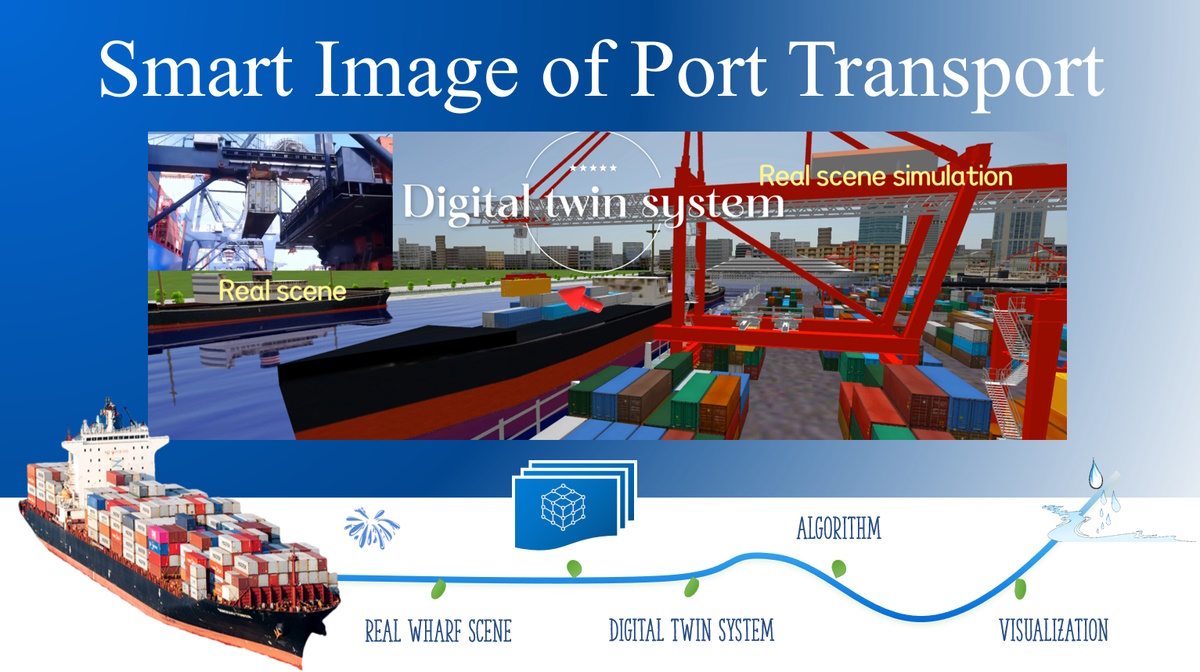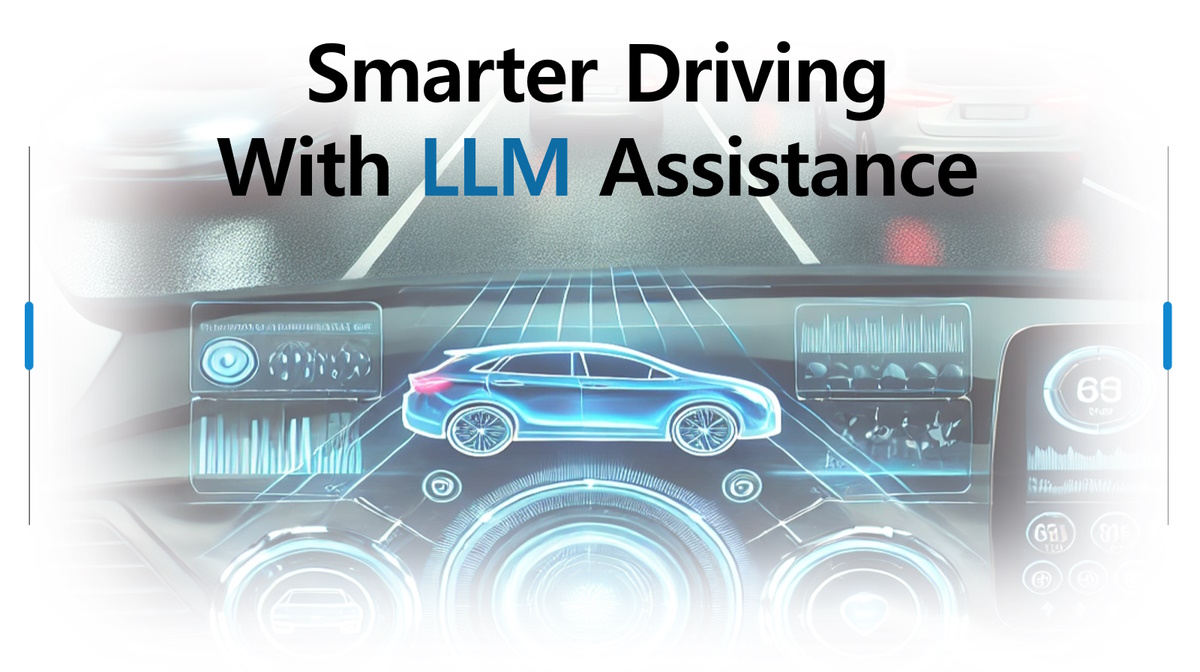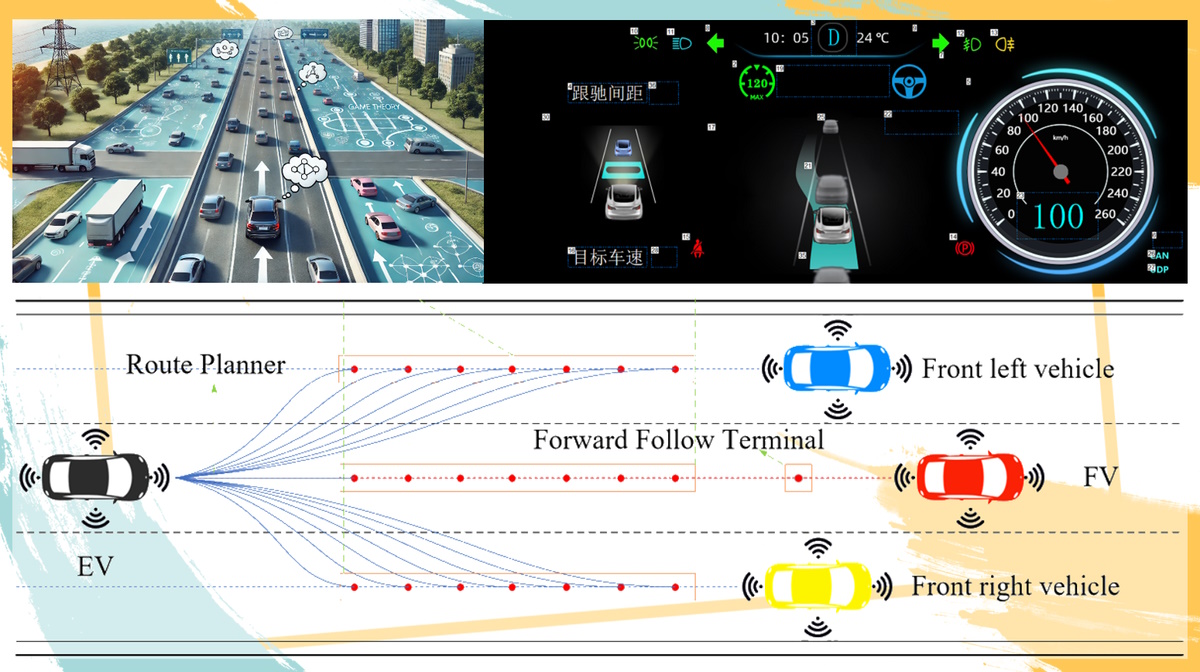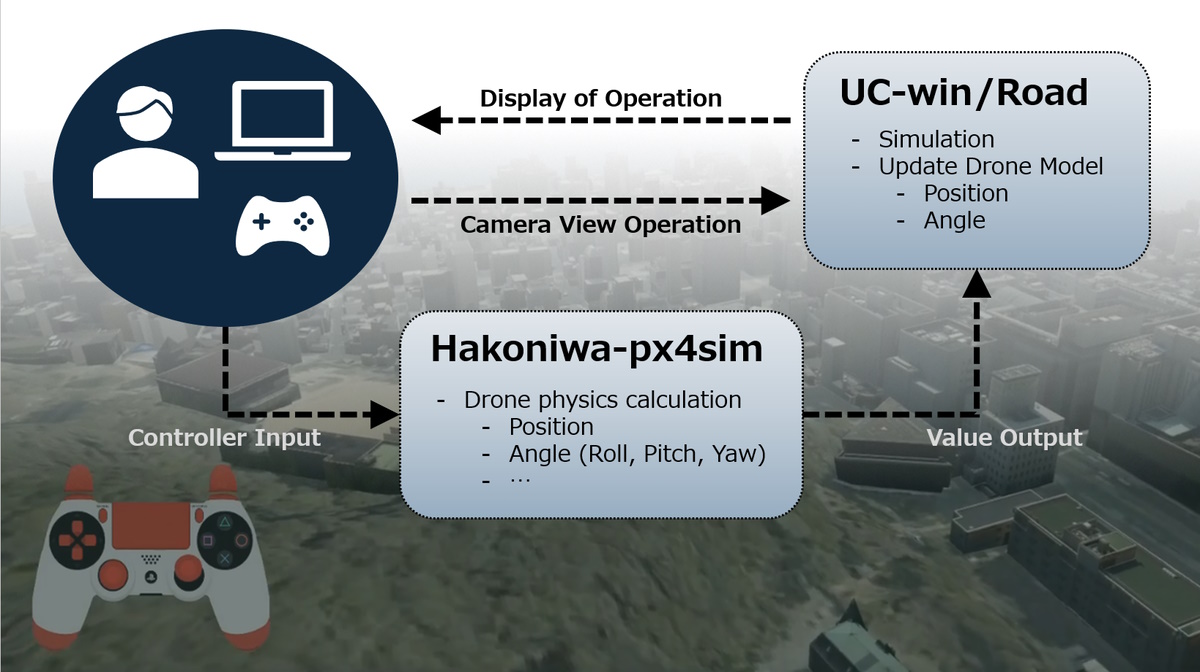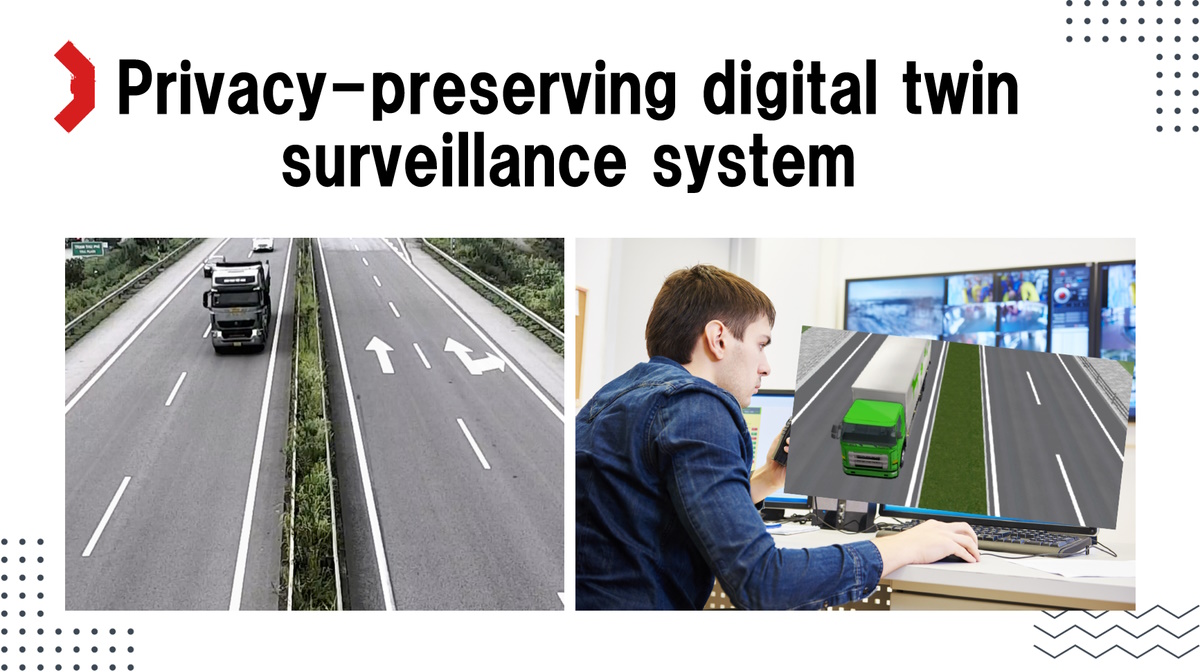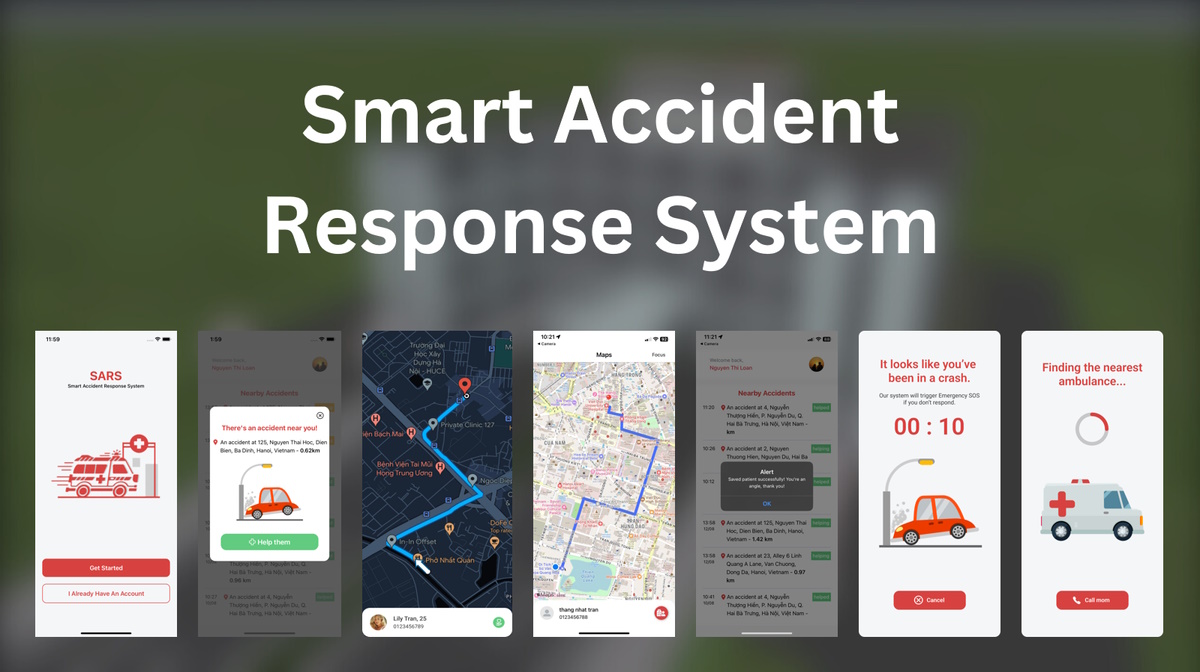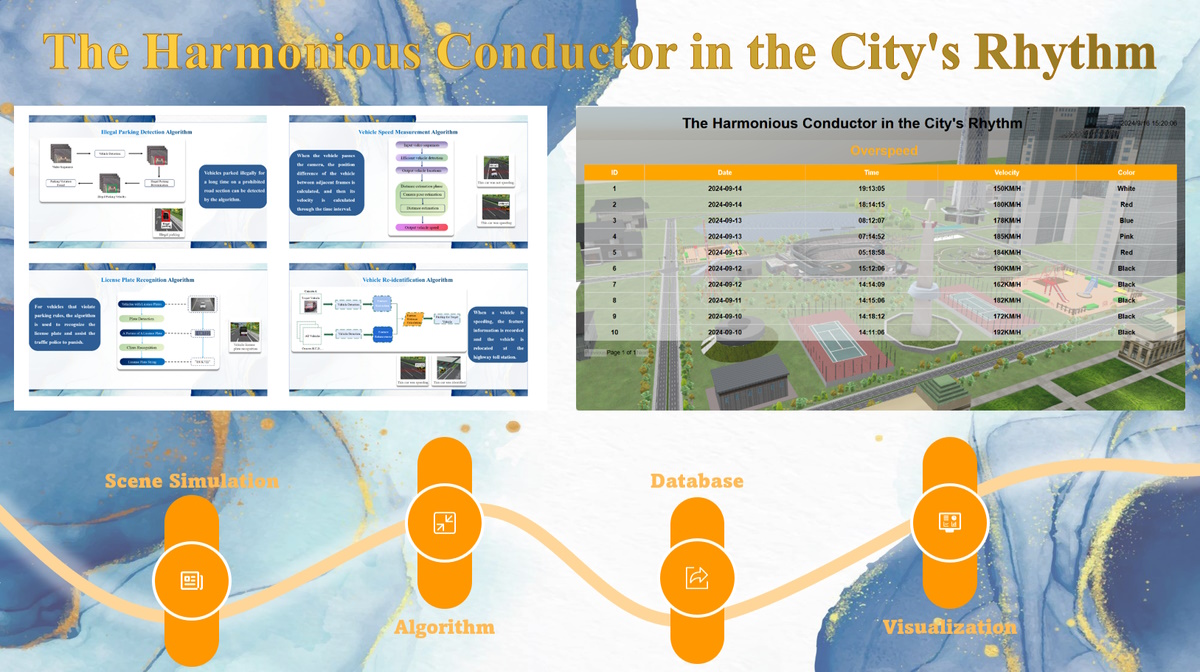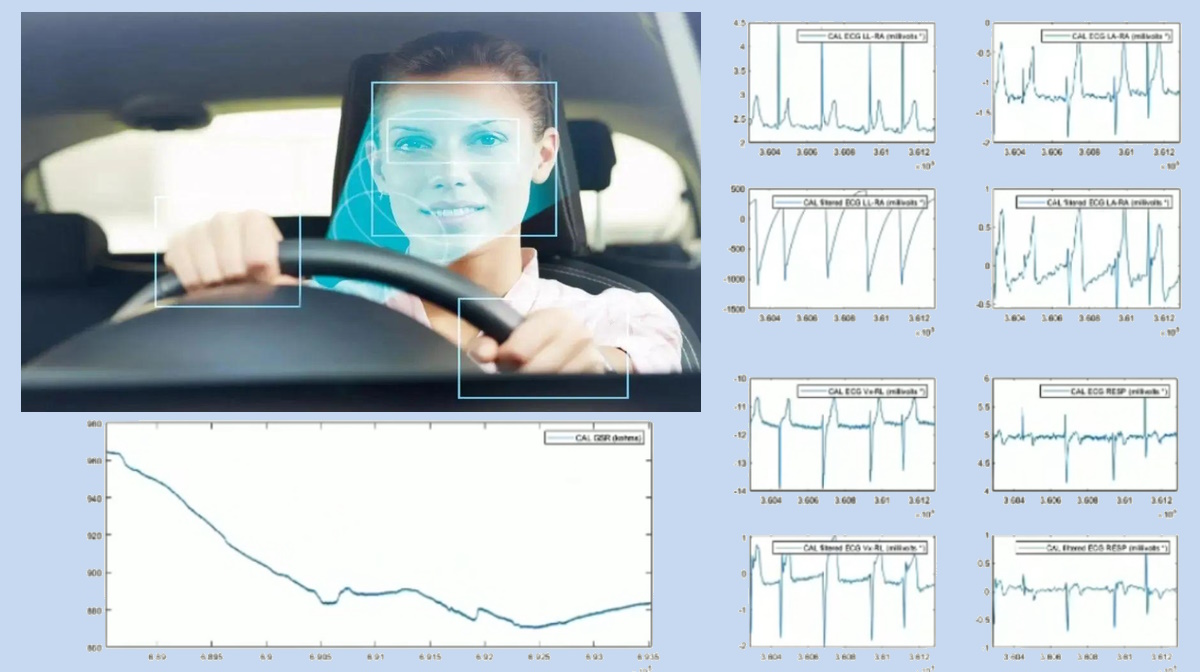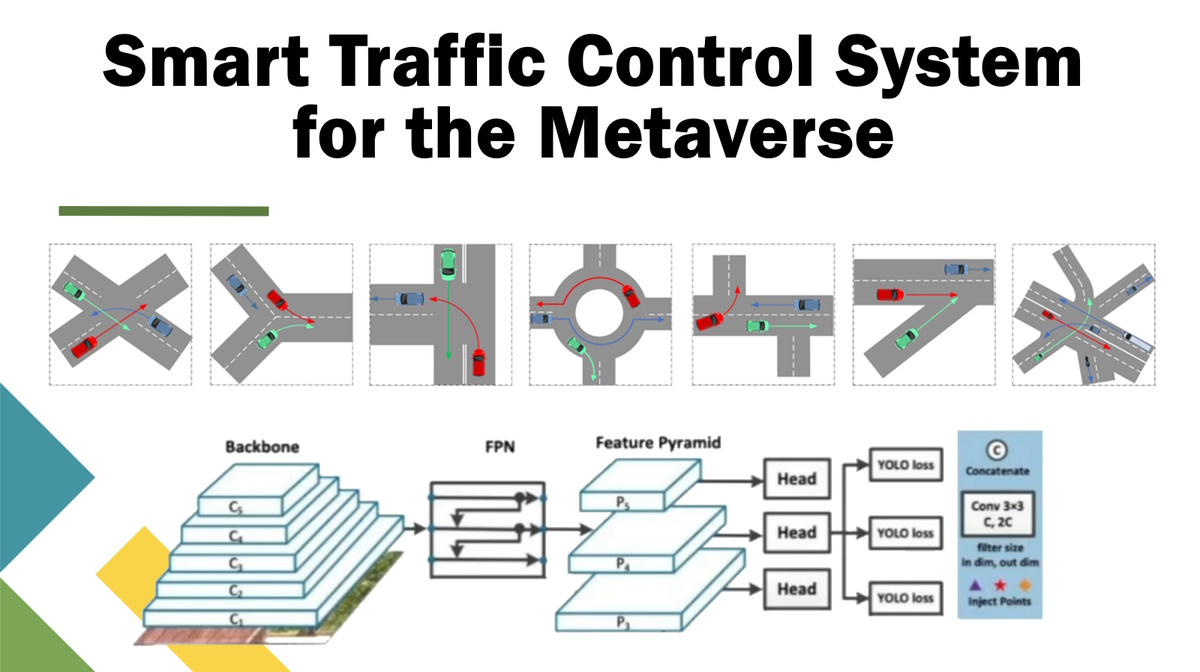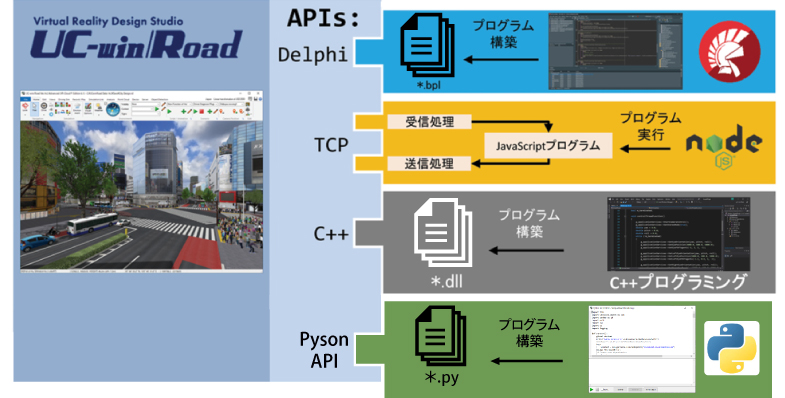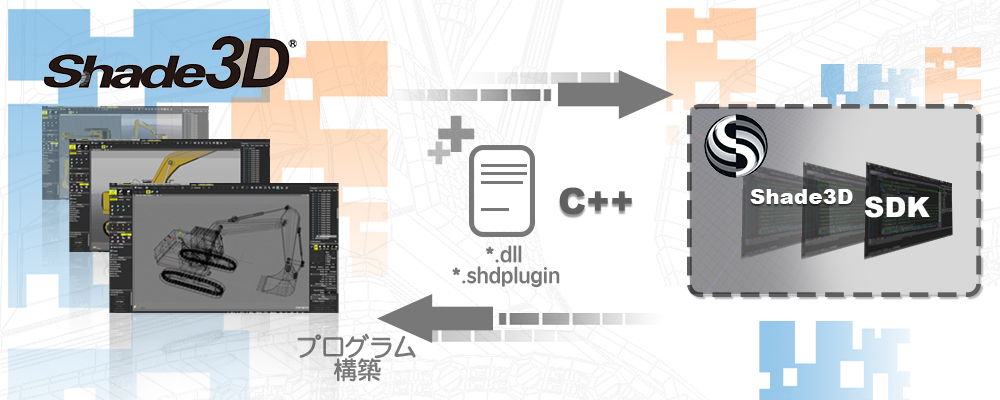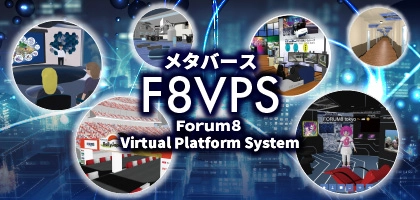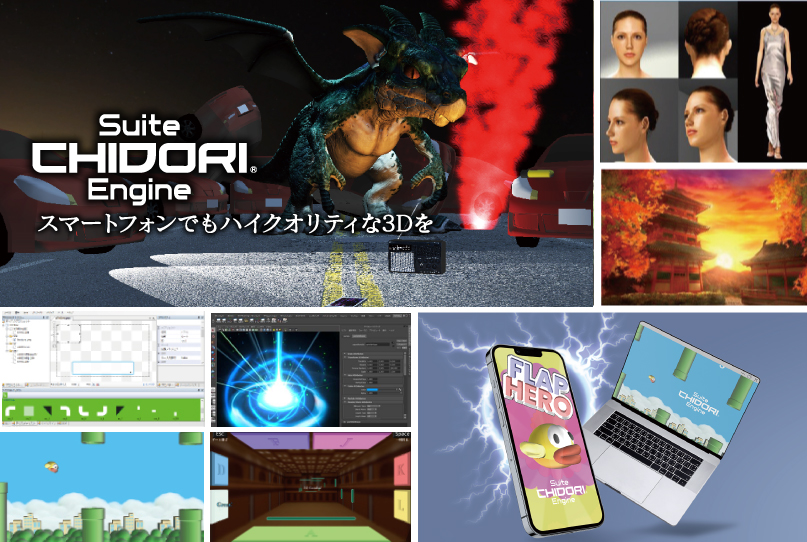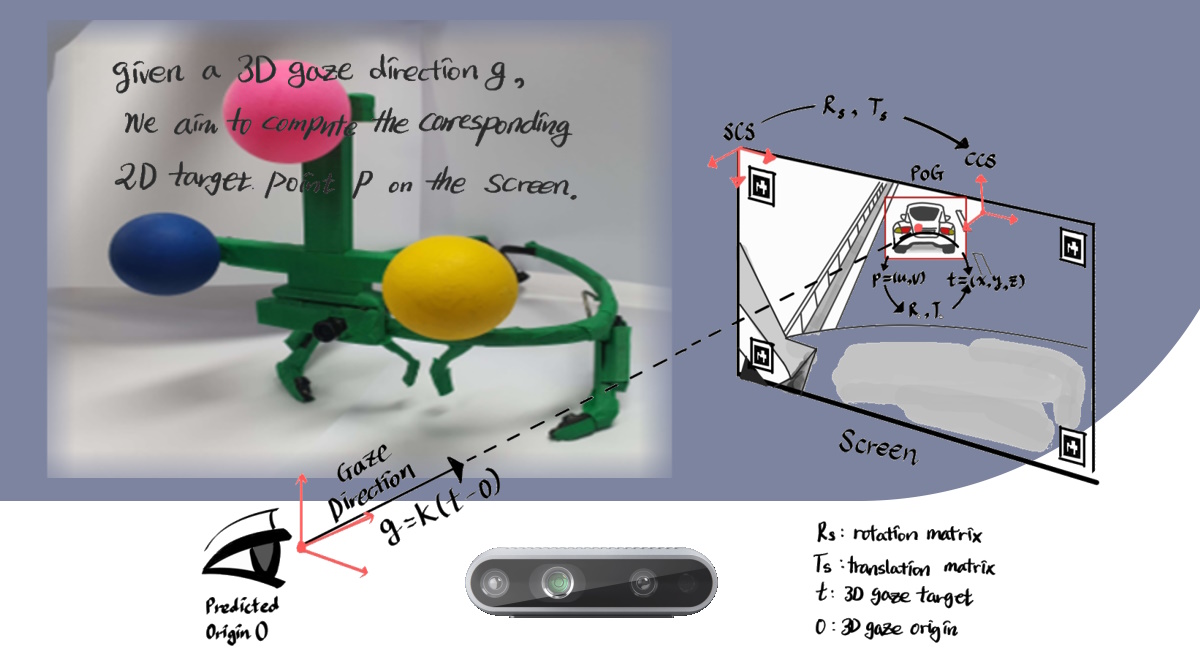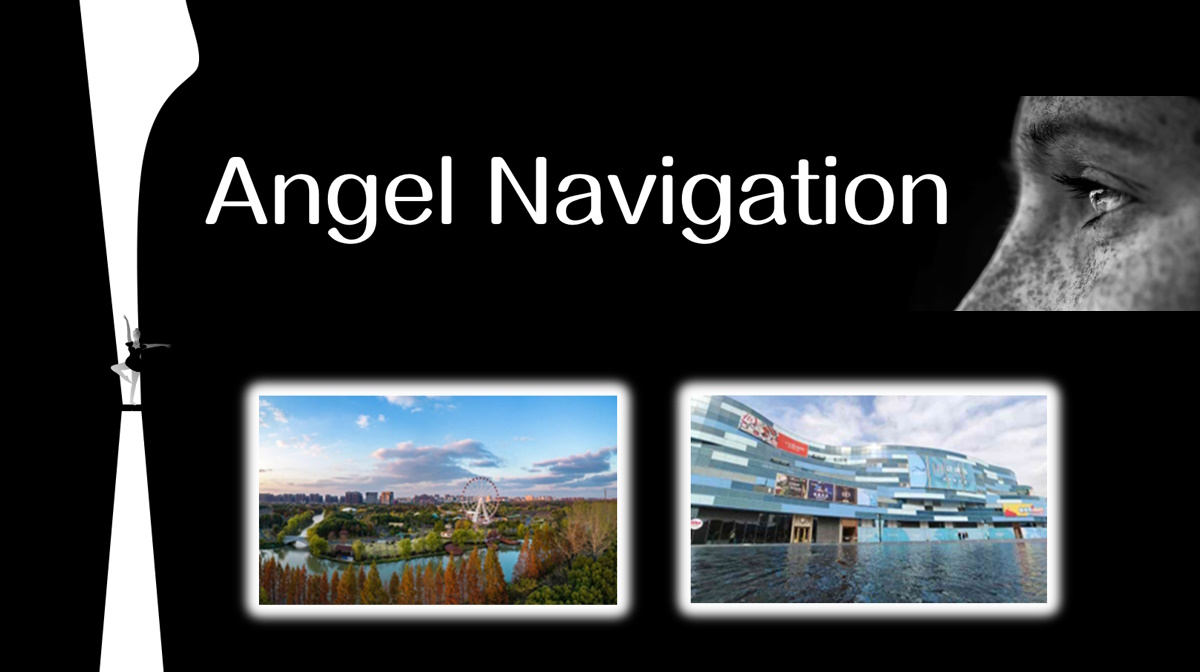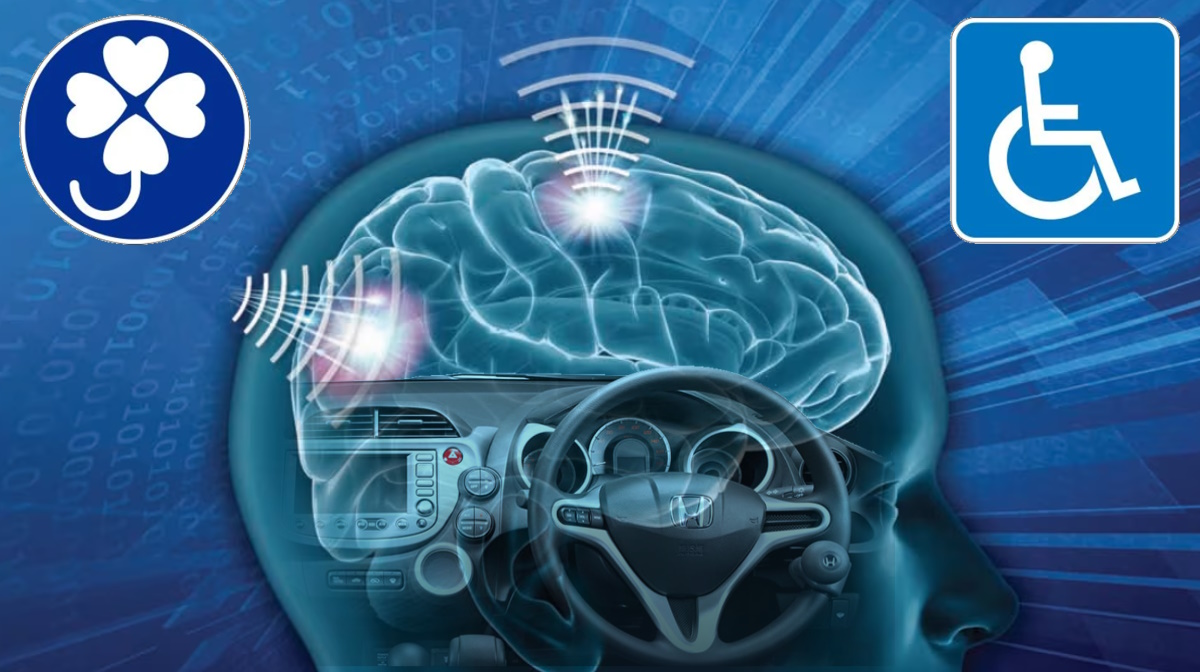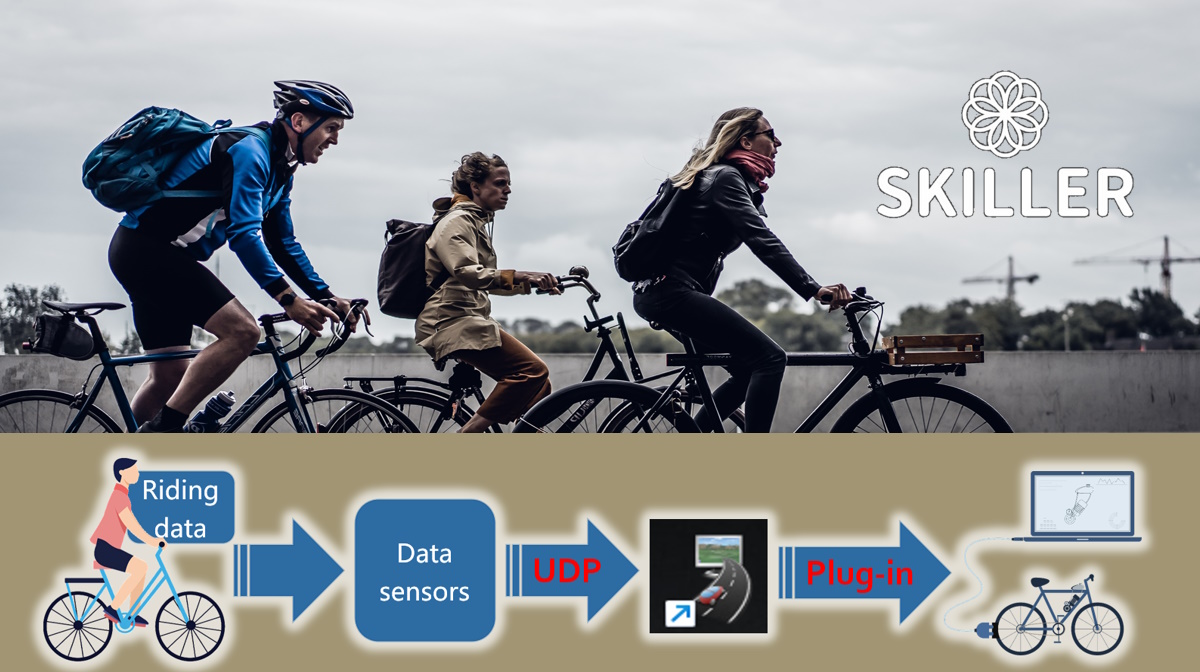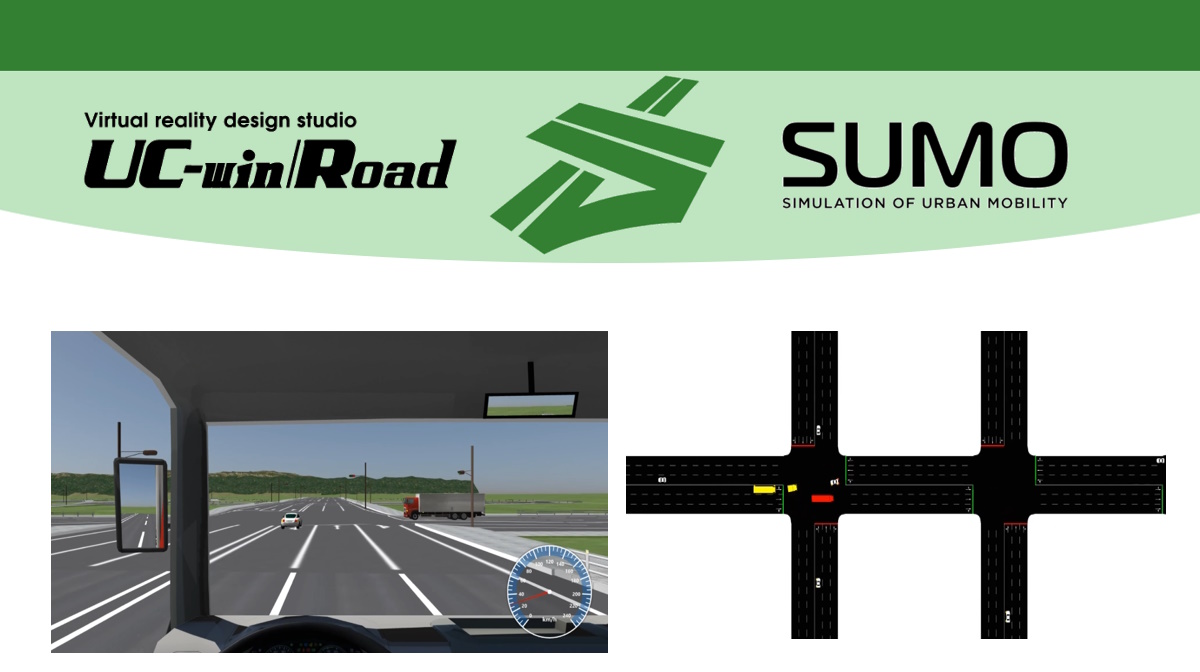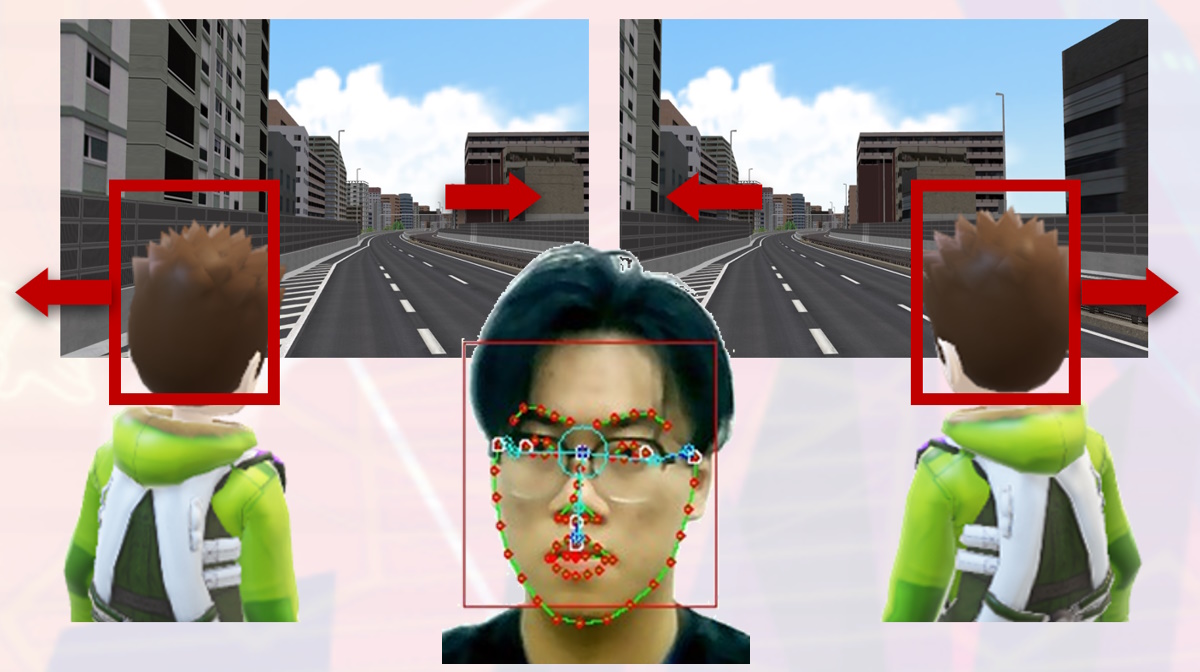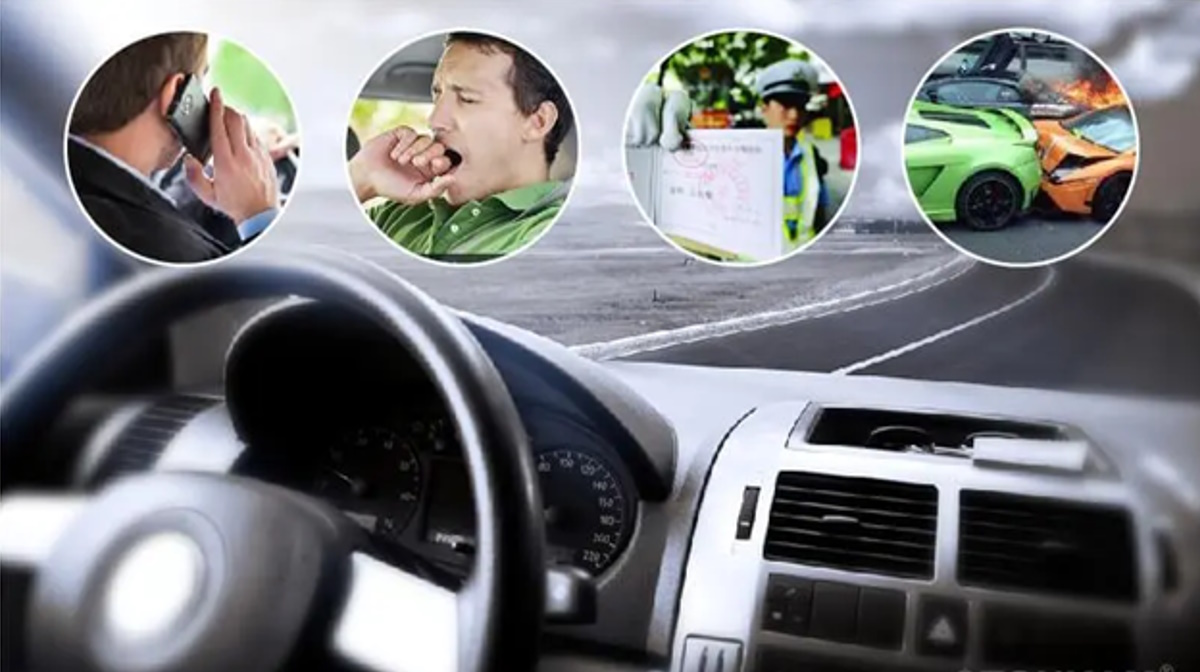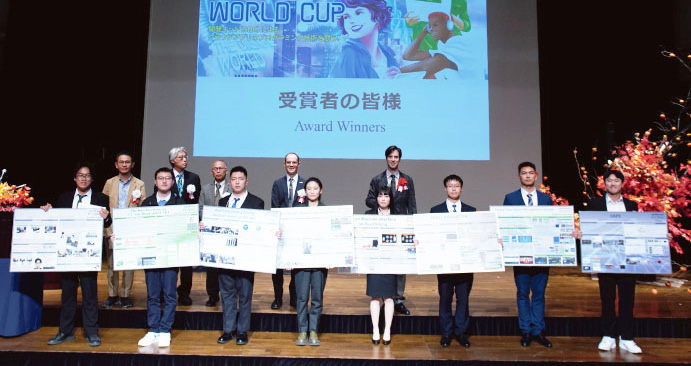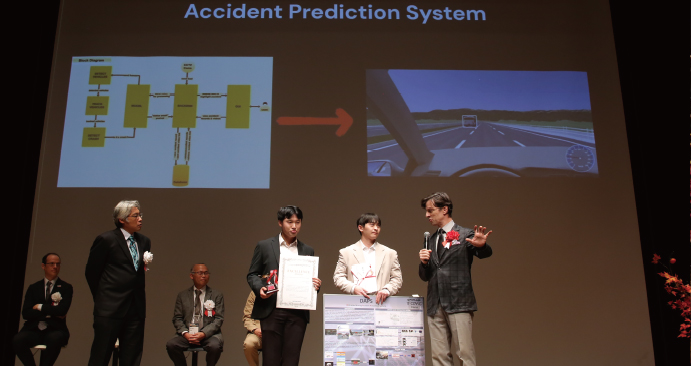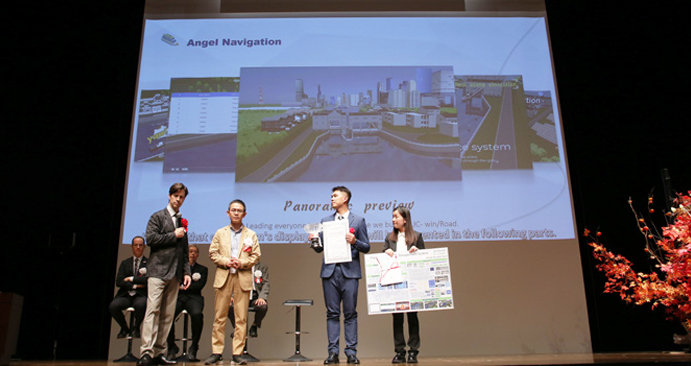


Results Announcement
On November 14th 2024, at Shinagawa Intercity Hall, the World Cup Award, Excellence Award and 4 Honorable Judge Award have been determined through the final open judging.
-
The 11th World Cup Award
Entry No.18 Pathfinder, Shanghai University (China)
Smart Image of Port Transport
Our project "Smart Image of Port Transport" will use real scenarios and sensors to achieve a digital twin of the port transport process. Features include: accurate simulation of container loading, automated truck scheduling, real-time monitoring of loading and unloading operations and equipment status, intelligent prediction of potential problems and optimal solutions. We focus on real-time and visualization to ensure that the system can adapt to the changing transportation environment.
-
Poster PDF
-
Excellence Award
Entry No.46 KArina, Kookmin University (Korea)
Smarter Driving with LLM Assistance
This project integrates the UC-win/Road simulator with LLMs to provide real-time driving insights. The system continuously monitors and analyzes incoming data to understand complex scenarios, assess risks, and offer context-aware advice to the driver. By predicting hazards and suggesting preventive actions, the system supports informed decision-making and enhances driving safety. Its goal is to bridge human intuition with AI-driven analysis, creating a supportive environment for drivers through real-time feedback, leading to safer and more efficient driving experiences.
-
Poster PDF
-
Honorable Judge Award Environment Design and IT Award(Prof. Tomohiro Fukuda)
Entry No.36 Horizon, Wuhan University of Technology (China)
Autonomous driving and human-machine interaction systems for learning driving styles
The research is based on Internet information technologies such as UC win/Road, autonomous driving and human-computer interaction. Based on C++ and user-defined plug-ins, we develop CAN, TCP and UDP network communication module, learning module to learn driver's driving style, decision-making module based on game theory, planning module considering driving style, horizontal control module with LQR + feed-forward control, and vertical control module with cascade PID; we develop human-machine interface based on LUA script, and we integrate the autonomous driving system and human-machine interaction system, and build an autonomous driving simulation platform based on the existing driving simulator.
-
Poster PDF
-
Honorable Judge Award Best Optimization Award(Prof. Makoto Sato)
Entry No.16 MSN, Ehime University (Japan)
Hako-drone flight in VR city
This project utilizes open-source technologies to create a simulation system called "Hako-drone flight in VR city." It allows users to operate drones in a realistic VR environment, providing a safe and controlled space for practice and experimentation. The core of the simulation is based on an open source project, and the drone's behavior is represented by a physics-based, highly accurate model. Additionally, it offers the unique advantage of simulating flights in areas that would typically require official registration or approval, enabling unrestricted training and testing opportunities.
-
Poster PDF
-
Honorable Judge Award Next-Gen Developer Award(Prof. Taro Narahara)
Entry No.39 ASASOBI!, VinUniversity (Vietnam)/University of Pennsylvania (USA)
Privacy-preserving digital twin surveillance system
Our ASASOBI privacy-preserving surveillance system utilizes multimodal LLMs, to observe a scene by digital twin. Data captured from sensors and camera is processed locally, anonymized by multimodal models to extract notable features to display in a real-time digital twin in UC-win/Road.
By transmitting only processed data, ASASOBI ensures the protection of people’s privacy, preventing the exposure of human physical characteristics such as faces, clothing, and height, as well as demographic details like gender, race, or age. This approach enables the system to perform key analytical tasks, such as traffic flow and spatial analysis, without compromising personal privacy.-
Poster PDF
-
Honorable Judge Award Technical Innovation Award(Mr. Yoann Pencreach)
Entry No.20 The Guardians, National Economics University (Vietnam)
Smart Accident Response System (SARS)
'The Smart Accident Response System (SARS) is an innovative solution designed to enhance road safety and efficiency through real-time accident detection, immediate response coordination, and advanced analytics. Leveraging the power of digital twins and the metaverse, SARS integrates cutting-edge technologies to provide a comprehensive traffic accident support system. By harnessing these technologies, SARS not only improves immediate accident response but also contributes to the long-term goal of safer and more efficient roadways.
-
Poster PDF
-
Nomination Award
Entry No.19 Harmony Watch, Shanghai University (China)
The Harmonious Conductor in the City's Rhythm
We employ cutting-edge machine learning algorithms to capture and analyze urban traffic flow through high-definition cameras, monitoring vehicle speeds in real time to ensure driving safety. The core of the system lies in its high-precision license plate recognition technology, which can quickly identify and record information of vehicles that violate regulations. Additionally, the system intelligently recognizes no-parking zones and automatically marks illegal parking behaviors. The design of the entire system focuses on user experience, with an intuitive interface and easy operation, aiming to use the power of technology to restore and maintain the harmonious order of the city.
-
Poster PDF
-
Nomination Award
Entry No.23 FutureSight Driver Monitor Squad, Beijing Jiaotong University(China)
Driver distraction state recognition and risk warning system based on multi-source information fusion
Currently, the driver state monitoring system relies on a single data source and can only identify fatigue and visual distraction, failing to recognize cognitive distraction. This study conducts driving simulation experiments under cognitive and visual distractions, collecting multi-source data, including head posture, gaze orientation, psychophysiology, and driving behavior using cameras and physiological instruments. An optimized sensitivity index for driving distraction recognition is created using the RFE algorithm, while a BP neural network model optimized by the Adam algorithm is developed. The system, based on multi-source information fusion, accurately identifies cognitive and visual distractions with an accuracy of 91.43%.
-
Poster PDF
-
Nomination Award
Entry No.31 Shoot for the star, Vietnam National University - University of Engineering and Technology(Vietnam)
Smart Traffic Control System for the Metaverse
Our project aims to revolutionize traffic management within the metaverse by developing an AI-powered system that dynamically adjusts traffic signals and provides real-time route guidance to drivers. Utilizing computer vision algorithms to analyze traffic patterns from CCTV cameras, the system will optimize traffic light timings at intersections to minimize congestion and improve flow. Simultaneously, it will leverage vehicle telemetry data and sophisticated routing algorithms to calculate and recommend optimal routes for each vehicle, considering factors like traffic density, road conditions, and individual destinations. This data-driven approach will create a more efficient and responsive traffic system that enhances the overall metaverse experience.
-
Poster PDF
Outline
Task for Submission
Download PDF Poster
Theme: Enabling the Future: Innovations in Metaverse and Digital Twin
Step into the future with the Student Cloud Programming World Cup 2024!
Our theme, 'Enabling the Future: Innovations in Metaverse and Digital Twin,' invites students to transcend traditional coding. Explore the cutting-edge realms of metaverse and digital twin technologies, envisioning a future where programming catalyzes groundbreaking advancements. From immersive learning environments to autonomous driving integration, this competition challenges you to pioneer solutions shaping tomorrow's possibilities. Join us in this venture where every line of code paints the canvas of the future. The future awaits—program it into existence!
Subtheme:
As a subtheme for your work, please consider the following examples for your reference.
1. Metaverse Ecosystems for Social Interaction:
- Develop innovative platforms and applications that enhance social interactions within the metaverse, fostering collaboration and community engagement.
2. Digital Twin Solutions for Urban Planning:
- Explore how digital twin technology can be applied to urban planning, infrastructure development, and sustainable city management.
3. Immersive Learning Environments in the Metaverse:
- Create educational experiences within the metaverse, utilizing digital twin concepts to provide immersive and interactive learning environments.
4. Health and Wellness in the Virtual World:
- Design applications that promote health and well-being in the metaverse, such as fitness programs, mental health support, or virtual healthcare solutions.
5. Virtual Commerce and Economies:
Explore innovative approaches to virtual commerce, digital currencies, and economic systems within the metaverse.
6. Entertainment and Gaming Experiences:
- Develop captivating and interactive gaming or entertainment experiences within the metaverse, pushing the boundaries of virtual reality and digital twin integration.
7. Digital Representation and Avatars:
- Experiment with new ways to create and customize digital avatars, enhancing user representation and personalization in the metaverse.
8. Environmental Monitoring and Simulation:
- Utilize digital twin technology for environmental monitoring and simulation, addressing real-world challenges related to climate change and sustainability.
9. Autonomous Driving in the Metaverse:
- Explore the integration of autonomous driving technologies within the metaverse, including simulations of self-driving vehicles and smart transportation systems.
10. Traffic Simulation and Management:
- Develop solutions for simulating and managing traffic flow within the metaverse, optimizing transportation systems and minimizing congestion.
[Free rental software]
■UC-win/Road, UC-win/Road SDK (Software Development Kit)
3D VR software UC-win/Road and its Development Kit for the creation of applications and options. The plugin development in Python is now supported.■Shade3D, Shade3D SDK (Software Development Kit)
Develop high-performance functions for the integrated 3D CG software Shade3D using C++ language.
■F8VPS(FORUM8 Virtual Platform System)
Using the most advanced technology in the industry,FORUM8 Virtual Platform System constructs any space such as your company office as a digital twin and enables real-time communication.■Suite Chidori Engine®
A domestic cross-platform 3D game engine is now available on the iOS library in addition to the Windows OS. The editor function has been added for improving creation efficiency.
[Development Environment]
■UC-win/Road SDK: Delphi, C++, Python, JavaScript
■Shade3D SDK: C++
■VR-Cloud® SDK: Delphi, Angel Script
■a3s SDK: Delphi, C/C++
■Suite Chidori Engine: Visual Studio 2019
* Development could also be system embedment and cooperation developed by using C#, C++, JavaScript, java, Pascal, Python, Fortran, Ruby, R language
Juries
-
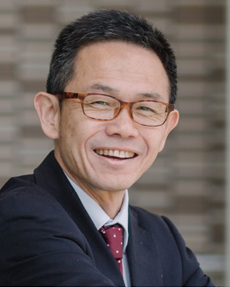
CPWC Head JudgeAssoc. Prof. Tomohiro Fukuda
Graduate School of Engineering, Osaka University
-
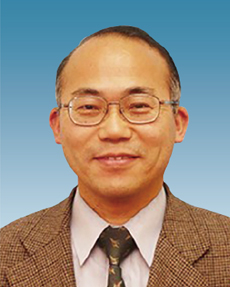
Prof. Makoto Sato
Professor Emeritus of Tokyo Institute of Technology
-
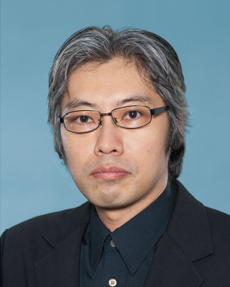
Assoc. Prof. Taro Narahara
College of Architectural Design New Jersey Institute of Technology
-
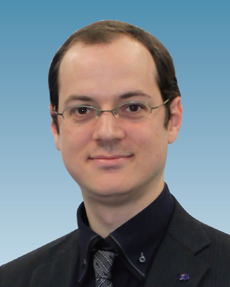
Mr. Yoann Pencreach
Senior Manager of Development Group, FORUM8
Schedule

- Entry Period
Mon. April 1st - Fri. June 28th, 2024
- Product license
free loan period Mon. April 1st - Fri. Nov. 15th, 2024
- Preliminary screening / Notification of Qualification Results
-
Screening: Wed. July 10th, 2024
Result notification: Fri. July 12th, 2024
- Submission period
Fri. Sep. 13th - Fri. Sep. 20th, 2024
- Nomination screening
Tue. Oct. 1st - Sun. Oct. 6th, 2024
- Announcement of Nominations
Mon. Oct. 7th, 2024
- Open Final Judging and Awards Ceremony
Thu. Nov. 14th, 2024
Venue: Shinagawa Intercity Hall (MAP)
Prize

World Cup Award (1 work)
Prize 300,000JPY
Excellence Award
Prize 100,000JPY
Honorable Judge Award (About 4 works)
Prize 50,000JPY
Nomination Award
Souvenir
Up to 3 members from the area other than Kanto area and 2 members from overseas in each team are scheduled to be invited.
Guideline
Application Guideline
- Task for Submission
-
Theme:
Subtheme:
Enabling the Future: Innovations in Metaverse and Digital Twin
Step into the future with the Student Cloud Programming World Cup 2024!
Our theme, 'Enabling the Future: Innovations in Metaverse and Digital Twin,' invites students to transcend traditional coding. Explore the cutting-edge realms of metaverse and digital twin technologies, envisioning a future where programming catalyzes groundbreaking advancements. From immersive learning environments to autonomous driving integration, this competition challenges you to pioneer solutions shaping tomorrow's possibilities. Join us in this venture where every line of code paints the canvas of the future. The future awaits—program it into existence!1. Metaverse Ecosystems for Social Interaction:
- Develop innovative platforms and applications that enhance social interactions within the metaverse, fostering collaboration and community engagement.2. Digital Twin Solutions for Urban Planning:
- Explore how digital twin technology can be applied to urban planning, infrastructure development, and sustainable city management.3. Immersive Learning Environments in the Metaverse:
- Create educational experiences within the metaverse, utilizing digital twin concepts to provide immersive and interactive learning environments.4. Health and Wellness in the Virtual World:
- Design applications that promote health and well-being in the metaverse, such as fitness programs, mental health support, or virtual healthcare solutions.5. Virtual Commerce and Economies:
Explore innovative approaches to virtual commerce, digital currencies, and economic systems within the metaverse.6. Entertainment and Gaming Experiences:
- Develop captivating and interactive gaming or entertainment experiences within the metaverse, pushing the boundaries of virtual reality and digital twin integration.7. Digital Representation and Avatars:
- Experiment with new ways to create and customize digital avatars, enhancing user representation and personalization in the metaverse.8. Environmental Monitoring and Simulation:
- Utilize digital twin technology for environmental monitoring and simulation, addressing real-world challenges related to climate change and sustainability.9. Autonomous Driving in the Metaverse:
- Explore the integration of autonomous driving technologies within the metaverse, including simulations of self-driving vehicles and smart transportation systems.10. Traffic Simulation and Management:
- Develop solutions for simulating and managing traffic flow within the metaverse, optimizing transportation systems and minimizing congestion.[Development Environment]
■UC-win/Road SDK: Delphi, C++, Python, JavaScript
■Shade3D SDK: C++
■VR-Cloud® SDK: Delphi, Angel Script ■a3s SDK: Delphi, C/C++
■Suite Chidori Engine®: Visual Studio 2019
>>Examples of application that can be developed using the VR-Cloud® SDK* Development could also be system embedment and cooperation developed by using C#, C++, JavaScript, java, Pascal, Python, Fortran, Ruby, R language
- Application requirements
- All participants involved in the creation of the submitted work must be students (working students, graduation research and production works created before graduation in the year 2023 are also eligible).
- Copyright of the submitted works
-
The copyrights to all data, works, and products created through this competition shall remain the property of the authors.
FORUM8 shall have the right to edit and process the data, works, and deliverables created by the author, and shall have the right to use them for secondary purposes, such as publishing and distributing them on its website, e-mail news, PR magazines, books, magazines, newspapers, etc., as part of external announcements, research presentations, sales activities, and public relations activities.
- Judging Standard
-
The objective of the competition is to develop an application program or software with UC-win/Road, UC-win/Road SDK (Software Development Kit), VR-Cloud® SDK, Shade3D, and Suite Chidori Engine. This software could be: all-purpose software, application programs, engineering software, business software or game software as well as system embedment and cooperation developed by using C#, C++, JavaScript, java, Pascal, Python, Fortran, Ruby, and R language.
Competing students are asked to submit a set of source codes of the software they used and a Power Point slide and video that give an explanation on the source codes.
The work will be evaluated on how well SDK was used in the creation of the cloud software from the aspect of programming quality, rationality, technicality, aesthetics, originality, and how well it is presented.
- Open judging and award ceremony
-
Date: Thu. November 14th, 2024
Venue: Shinagawa Intercity Hall (MAP)Nominated teams will be asked to participate in the open judging and give a one-minute presentation. If you do not participate, you will not be eligible for an award.
Entry and submission process
- 1. Entry registration
-
Please register and submit your work plan in English during the registration period (Mon. April 1st – Fri. June 28th, 2024).
Judging will be conducted blindly. The name of the team or work should not identify the individual or group, such as the name of the country or school.
To register, please complete the page accessible from the button below with your team name, team members, etc.Entry/Register
※EndedPlease download and fill out the form using the following link to present your work with an overview explanation (in 100 words in English) and any images and upload it using the Registration form below.
- 2. After entry is accepted
-
The following information will be sent to you by e-mail after the entry has been accepted.
- Entry ID
- URL to download the data and materials provided for the production of the work
- Information on how to apply for seminars you wish to attend
- 3. Preliminary Rounds / Notification of Results
-
The preliminary screening will be held on Wed. July 10th, and the selection results will be announced on Fri. 12th July.
- 4. Work submission
-
Only teams that enter before the deadline and pass the qualifying round will be allowed to submit their works. Please submit your work by the submission deadline on Fri. September 20th, 2024 at the dedicated URL that will be separately announced at a later date.
[Documents to be submitted]
・Program application
・Source code and sript (Text format)
・Simplified user manual (Word format, etc.)
・Program Concept: Future tasks and ideas (PowerPoint format, etc.)
*This can include content not directly associated with the program
・Video under 5 minutes in length (MP4 format)
- Contact for inquiries and questions
-
FORUM8 Co. Ltd. Tokyo Head office Cloud Programing World Cup Section
Shinagawa Intercity A-21F, 2-15-1 Konan, Minato-ku, Tokyo 108-6021 Japan
TEL:03-6894-1888 FAX:03-6894-3888
E-mail:cpwc@forum8.co.jp
URL:http://www.forum8.co.jp/english/
Available software
- Duration of free rental of product license
-
Sat. April 1st to Fri. November 15th, 2024
* The rental duration, license restrictions and format provided will depend on the individual product.
* Rental licenses allow the use of all the functions that each applicable software offers, but they cannot be used for purposes other than the competition.
- Available software
-
■F8VPS(FORUM8 Virtual Platform System)
■Unique transmission technology a3s (Anything as a Service) SDK
Online Seminars
Applicants can also participate in training and seminar (free or paid) on this software held by FORUM8.
Past Award-Winning Works
-
The 11th World Cup Award
Plough the waves Team, Shanghai University (China)
Digital Twin Sluice Management System
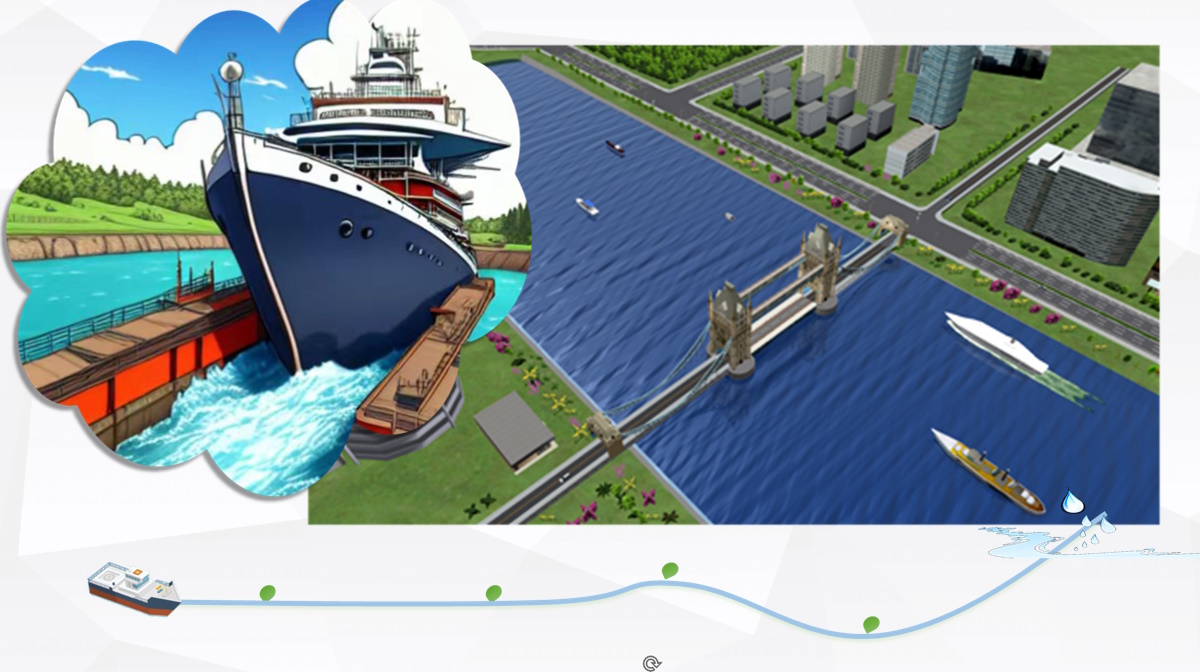 In recent years, the occurrence of water traffic accidents is common, including the collision of two ships, capsizing and other phenomena, the main reasons are insufficient surface supervision, large ship flow, improper operation of the driver, and the water is not calm so that the ship deviates from the course. In order to improve the safety of water navigation, We put forward the digital twin sluice monitoring system to realize the real-time monitoring and prediction of sluice running state and reduce the occurrence of water traffic accidents.
In recent years, the occurrence of water traffic accidents is common, including the collision of two ships, capsizing and other phenomena, the main reasons are insufficient surface supervision, large ship flow, improper operation of the driver, and the water is not calm so that the ship deviates from the course. In order to improve the safety of water navigation, We put forward the digital twin sluice monitoring system to realize the real-time monitoring and prediction of sluice running state and reduce the occurrence of water traffic accidents.
-
The 11th Excellence Award
IFocus, Kookmin University (Korea)
DAPS(Distracted driving Accident Prevention System)
-
The 11th Honorable Judge Award Environment Design and IT Award (Prof. Tomohiro Fukuda)
You Are My Eyes Team, Shanghai University (China)
ANGEL NAVIGATION
-
The 11th Honorable Judge Award Best Optimization Award (Prof. Makoto Sato)
MT Four, Sugiyama Jogakuen University (Japan)
Brain Machine Interface for Fun Driving
-
The 11th Honorable Judge Award Creative Solutions Award (Prof. Taro Narahara)
Skiller, Beihang University (China)
Bicycle simulator based on UC-win/Road
-
The 11th Honorable Judge Award Technology Award
(Mr. Yoann Pencreach)Real Never Give Up-Team, Beijing Jiaotong University (China)
The Interface between UC-win/Road and SUMO
-
The 11th Nomination Award
FIVE, Beijing University of Civil Engineering and Architecture (China)
Real-Time Drowsy Driving Detection based on EEG data
Contest History
-
Cloud Programming World Cup
The 11th Cloud Programming World Cup for Students
-
Cloud Programming World Cup
The 10th Cloud Programming World Cup for Students
-
The 9th Cloud Programming World Cup for Students

-
The 8th Cloud Programming World Cup

-
The 7th Cloud Programming World Cup

-
The 6th Cloud Programming World Cup

-
The 5th Cloud Programming World Cup

-
The 4th Cloud Programming World Cup

-
The 3rd Cloud Programming World Cup

-
The 2nd Cloud Programming World Cup

-
The 1st Cloud Programming World Cup






